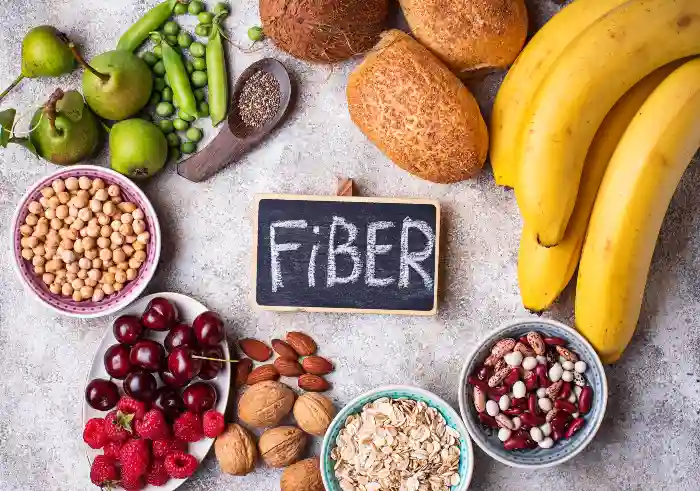Navigating Metformin: Foods to Avoid for Effective Diabetes Management
Managing diabetes often involves a multifaceted approach, and dietary choices play a crucial role in optimizing treatment outcomes. If you’re taking metformin, a commonly prescribed medication for type 2 diabetes, understanding which foods to avoid can significantly impact your glucose control and overall health.

The Role of Diet in Diabetes Management
Dietary considerations are pivotal for individuals with diabetes. Your food choices directly influence blood sugar levels and can affect how medications, like metformin, work within your body. Incorporating a balanced diet that aligns with your medication regimen is essential for maintaining stable glucose levels and minimizing potential complications.
Understanding Metformin and Its Mechanism
Before delving into foods to avoid, it’s important to comprehend how metformin functions. Metformin is an oral medication that helps lower blood sugar levels by improving insulin sensitivity and reducing glucose production in the liver. As you take metformin, certain foods can interact with the medication’s effects, potentially leading to unfavorable outcomes.
Foods to Approach with Caution
While metformin is generally well-tolerated, certain foods can impact its effectiveness or cause undesirable side effects. Here are foods to approach with caution while taking metformin:
Highly Processed Carbohydrates
Foods rich in refined carbohydrates, such as sugary snacks, white bread, and sugary beverages, can cause rapid spikes in blood sugar levels. These spikes might counteract the glucose-lowering effects of metformin. Opt for whole grains and complex carbohydrates to promote stable blood sugar levels.
Excessive Alcohol
Alcohol consumption can affect blood sugar levels and interact with metformin. Excessive drinking can lead to low blood sugar (hypoglycemia) when combined with metformin. If you choose to drink, do so in moderation and monitor your blood sugar closely.
High-Fat Foods
While fats themselves don’t directly influence blood sugar, consuming high-fat meals can delay the absorption of metformin and affect its effectiveness. Additionally, high-fat diets can contribute to insulin resistance over time. Focus on balanced meals that include healthy fats in moderation.
Strategies for Effective Diabetes Management
Navigating your diet while taking metformin requires a thoughtful approach. Here are strategies to optimize your diabetes management and make informed dietary choices:
Focus on Complex Carbohydrates
Choose whole grains, legumes, vegetables, and fruits as your primary sources of carbohydrates. These foods have a slower impact on blood sugar levels, promoting more stable glucose control and complementing the action of metformin.
Monitor Blood Sugar Levels
Regularly monitor your blood sugar levels to understand how your body responds to different foods and your medication. This empowers you to make informed choices and detect any potential concerns early.
Mindful Alcohol Consumption
If you consume alcohol, do so in moderation and consider its impact on blood sugar levels. Always monitor your glucose response and be prepared to adjust your dietary choices accordingly.
Collaborating with Healthcare Professionals
It’s essential to work closely with your healthcare team, including your primary care physician and a registered dietitian. They can provide personalized guidance based on your medical history, current health status, and medication regimen.
Foods to Avoid While Taking Metformin – Frequently Asked Questions
1. Why are certain foods cautioned against while on metformin?
Certain foods can impact blood sugar levels and interact with metformin’s effects, potentially affecting its efficacy or causing side effects.
2. Can I still enjoy carbohydrates while taking metformin?
Yes, but opt for complex carbohydrates like whole grains, legumes, and vegetables that have a slower impact on blood sugar, aligning with metformin’s action.
3. Why should I be cautious with alcohol consumption on metformin?
Alcohol can cause low blood sugar (hypoglycemia) when combined with metformin, emphasizing the need for moderation and careful monitoring.
4. Should I completely avoid sugary snacks and beverages?
It’s advisable to limit consumption of sugary snacks and beverages, as they can lead to rapid spikes in blood sugar, potentially counteracting metformin’s effects.
5. Are there specific fruits to avoid while on metformin?
Fruits with high glycemic index, like watermelon and pineapple, should be consumed in moderation to prevent sudden blood sugar spikes.
6. Is it true that high-fat foods can impact metformin’s absorption?
Yes, consuming high-fat meals can delay metformin absorption and affect its effectiveness. Opt for balanced meals with healthy fats in moderation.
7. Can caffeine interfere with metformin’s action?
Caffeine itself doesn’t directly interact with metformin, but certain caffeinated beverages may contain added sugars that can affect blood sugar levels.
8. Is it recommended to avoid dairy products while taking metformin?
Dairy products are generally fine to consume while on metformin. Opt for low-fat or non-fat options and monitor your blood sugar response.
9. Can spicy foods affect metformin’s effects?
Spicy foods themselves are unlikely to affect metformin’s action. However, some spicy dishes might contain ingredients that impact blood sugar.
10. Should I skip metformin if I want to indulge in a special meal?
Consult your healthcare provider before making any changes to your medication regimen. They can provide guidance on managing metformin during special occasions.
Conclusion
Effective diabetes management involves a comprehensive approach, and dietary choices are a cornerstone of this journey. By understanding how metformin works and making informed decisions about the foods you consume, you’re taking proactive steps to achieve stable blood sugar levels and enhance your overall well-being.




